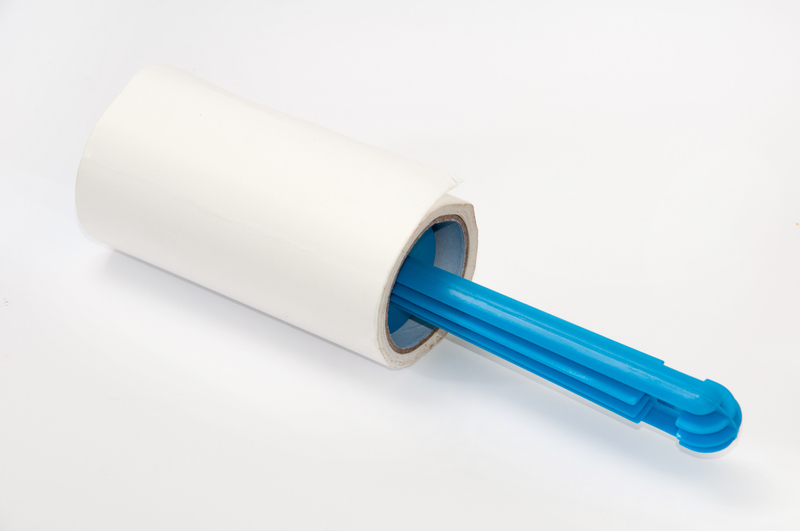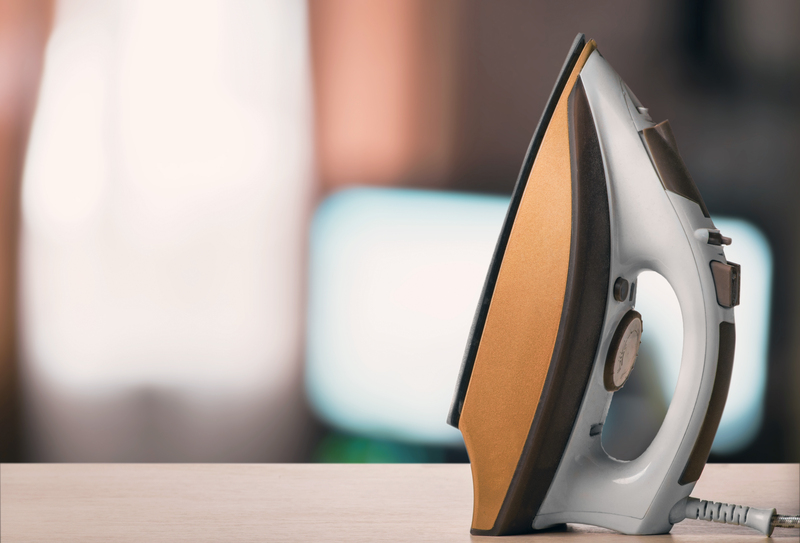Expert Tips for End of Tenancy House Cleaning for Tenants
Posted on 21/08/2025
Expert Tips for End of Tenancy House Cleaning for Tenants
Moving out can be both an exciting and stressful experience. One of the most crucial tasks that every tenant faces as they vacate a property is ensuring the place is left spotless. An effective end of tenancy cleaning is vital not only to secure your deposit but also to maintain a good relationship with your landlord or letting agent. In this comprehensive guide, we will highlight a series of expert tips for end of tenancy house cleaning for tenants so that you can confidently leave with peace of mind, knowing the space shines for its new occupants.
Why Is End of Tenancy Cleaning So Important?
The responsibility of end of tenancy cleaning falls on tenants as per most rental agreements. Failing to thoroughly clean your rented home can result in deductions from your security deposit, disputes with your landlord, or even negative references for future rentals. By understanding the importance of this process and following expert guidance, tenants can prevent unnecessary expenses and complications.
- Ensures you get your full deposit back
- Leaves a positive impression on the landlord/agent
- Complies with lease obligations
- Prepares the home for the next tenant

Creating an Effective End of Tenancy Cleaning Checklist
Before rolling up your sleeves, it's essential to prepare a thorough end of tenancy cleaning checklist. This will help ensure that no corner is overlooked and that you remain organized throughout the process. Here's a comprehensive list to keep you on track:
General Areas
- Dust and wipe down all surfaces, including baseboards and skirting boards
- Clean all windows (inside), sills, and ledges
- Remove any cobwebs from ceilings and walls
- Vacuum carpets and mop hard floors
- Check and clean light switches and electrical outlets
- Wipe down doors, handles, and frames
- Empty all bins and remove trash from the property
Kitchen
- Degrease and clean the oven (inside and out)
- Clean the hob and extractor fan (replace/clean filters if necessary)
- Scrub and disinfect kitchen counters and cabinets
- Wash sink and taps, ensuring limescale is removed
- Clean appliances: fridge/freezer, microwave, kettle, toaster
- Defrost the freezer and clean inside/outside
- Wipe tiled walls and backsplashes
Bathrooms
- Scrub and disinfect the toilet, bath, shower, and sink
- Descale shower heads and taps
- Wipe down mirrors, glass, and all surfaces
- Clean tiles and grout to remove mildew or mould
- Empty and clean any storage units
Bedrooms and Living Room
- Vacuum and clean carpets or mop floors
- Dust furniture, wardrobes, and shelves
- Check under beds and behind furniture for debris
- Wash bed linens if provided by the landlord
- Clean curtains or blinds as required
Expert Techniques for a Professional Finish
1. Always Clean from Top to Bottom
Professional cleaners recommend starting with the highest points in each room--ceilings, top of cabinets--before working your way down to ensure dust and debris don't settle where you've already cleaned.
2. Use Suitable Cleaning Products
It's essential to use the right products for different surfaces. For example, use limescale remover in bathrooms, a strong degreaser in kitchens, and gentle cleaners on wooden surfaces. Avoid harsh chemicals where they can damage surfaces or harm the environment.
3. Don't Overlook High-Traffic Areas
Pay special attention to areas like entrance halls, kitchens, and bathrooms--landlords are particularly attentive to these spaces. Ensure floors are spotless and surfaces are sanitized.
4. Deep-clean Carpets and Upholstery
If carpets or soft furnishings are stained or heavily soiled, consider renting a carpet cleaner or hiring a professional. Many landlords expect carpets to be professionally cleaned at the end of a tenancy.
5. Remove All Personal Belongings
Make sure nothing of yours is left behind. This not only facilitates cleaning but also avoids complaints from landlords or new tenants about leftover items.
6. Refresh Walls and Paintwork
Remove marks from walls with a mild cleaning solution or a magic sponge. If you've caused minor damage or left nail holes, patch them up and touch up the paint if necessary (make sure to use the same colour and finish).
7. Disinfect Key Points
Don't forget to disinfect door handles, light switches, and remote controls. This demonstrates thoroughness and helps stop the spread of germs.
Common Mistakes Tenants Make During End of Tenancy House Cleaning
- Neglecting hidden areas such as under furniture or behind appliances
- Forgetting to clean inside cupboards, drawers, and ovens
- Leaving the cleaning until the last minute, resulting in a rushed job
- Not defrosting the freezer, leading to leaks or a dirty appearance
- Failing to address limescale and mould, especially in bathrooms
- Missing marks on walls, sockets, or light fixtures
By avoiding these common mistakes and following a structured plan, tenants can maximize their chances of passing the end of tenancy inspection with flying colors.
Should You Hire a Professional End of Tenancy Cleaning Service?
While DIY end of tenancy cleaning is possible, hiring professionals offers several advantages. Professional cleaning companies:
- Know exactly what landlords and letting agents expect
- Use advanced equipment and commercial-grade products
- Can provide receipt or proof of cleaning for your landlord
- Save you time and ensure higher cleaning standards
- Guarantee satisfaction--some offer free re-cleans if the inventory clerk isn't happy
However, if you choose to clean the property yourself, allocate sufficient time--ideally a full day for a small apartment, and even longer for larger homes.
Eco-Friendly End of Lease Cleaning Tips
Concerned about harsh chemicals and their impact on the environment? Opt for eco-friendly end of tenancy cleaning solutions:
- Use natural cleaners like vinegar, baking soda, and lemon juice where possible
- Choose reusable microfiber cloths instead of disposable wipes
- Open windows to ventilate and dry freshly cleaned surfaces
- Dispose of waste responsibly, recycling where appropriate
Not only are these methods kinder to the planet, but they also create a healthier living environment for the next tenant.
What Landlords and Agents Look for During Final Inspection
After cleaning, your landlord or agent will perform a move-out inspection, checking for cleanliness and condition against the inventory report made at the start of your tenancy. They will:
- Inspect for dust, dirt, and grime in every room
- Check kitchen appliances and cupboards
- Pay close attention to bathrooms (sanitary conditions, limescale, mould)
- Look for signs of damage or wear-and-tear
- Ensure all rubbish has been removed from the premises
Failing to meet expectations can result in deposit deductions, so take your time to inspect your work or even ask for a friend's fresh set of eyes before handing over the keys.
Step-by-Step: How Tenants Can Ace End of Tenancy House Cleaning
- Start Early: Don't underestimate how long a thorough clean will take. Start a week in advance by tackling rooms or tasks in stages.
- Declutter Completely: Remove all belongings and rubbish before beginning your clean.
- Gather Supplies: Stock up on suitable cleaning products, sponges, mop, vacuum, and trash bags.
- Clean One Room at a Time: Focus on finishing one area before moving on.
- Always Double-Check: Use your checklist to revisit spots you may have missed.
- Document Your Results: Take before-and-after photos to serve as proof of cleanliness in case of disputes.
- Invite Third-Party Review: If possible, request a friend or family member to inspect before the final landlord review.

FAQs: End of Tenancy Cleaning for Tenants
Q: Do I need to clean the property myself, or can I hire a cleaner?
Either option is generally acceptable, as long as the final result meets the standards outlined in your lease or inventory report. If you hire professionals, keep the receipt as proof of service for your landlord or agent.
Q: What happens if the landlord isn't satisfied with the cleaning?
If your landlord deems the cleaning insufficient, they may organise a professional clean themselves and deduct the cost from your deposit. To avoid this, follow a rigorous cleaning checklist and document your efforts thoroughly.
Q: Can landlords ask for carpets to be professionally cleaned?
This depends on the rental contract. Some agreements stipulate that carpets must be professionally cleaned before moving out, so always check your lease to avoid unnecessary deductions.
Q: Do I need to clean the oven and fridge even if rarely used?
Yes--all appliances must be cleaned regardless of frequency of use, as they are part of the fixtures and fittings included in the inventory.
Conclusion: Leave a Lasting Impression
Undertaking a meticulous end of tenancy house cleaning is the best way for tenants to secure their deposit, fulfil their contractual responsibilities and leave a positive legacy for future renters. By following these expert tenant cleaning tips, preparing a comprehensive checklist, and addressing every area with care--whether by yourself or a professional service--you can enjoy a stress-free move and set yourself up for successful new tenancies in the future.
Remember: Clean early, clean thoroughly, and always check your inventory report for specific landlord expectations. Happy moving!
Latest Posts
Transform Velvet Curtain Cleaning into a Safe Routine
The Ultimate Jewellery Cleaning Methods You Need
Say Goodbye to Shrinking: The Safe Way to Wash Sofa Covers
Cleaning Burnt Residue Off Your Stovetop: Power Tips and Tricks




